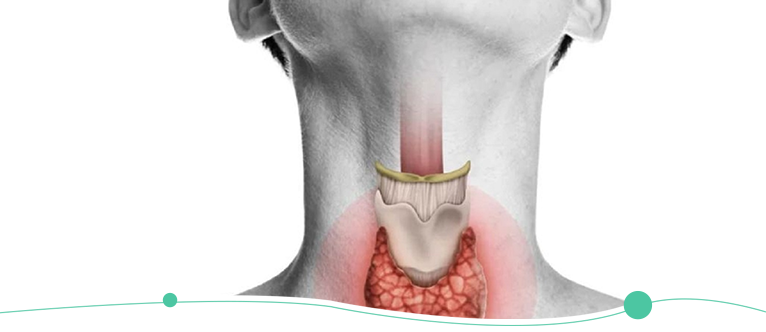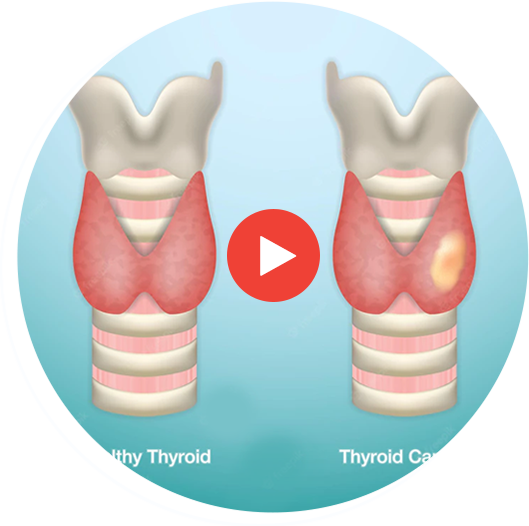

TELMDCARE
Hypothyroidism is a medical condition where the thyroid stops creating or releasing the necessary amount of the thyroid hormone into the bloodstream. This slows down metabolism.
Hypothyroidism is a thyroid condition where the thyroid in underactive. It can cause fatigue, weight gain, and a sensitivity to cold temperatures. Hormone replacement therapy is the main treatment out there for hypothyroidism.
We’ll be discussing the causes, symptoms and possible treatment options for hypothyroidism and how consulting an online doctor for hypothyroidism can help.
Book an Appointment for Only
TELMDCARE
What is Hypothyroidism?
When the levels of thyroid hormones aren't enough to meet the needs of your body, you may experience hypothyroidism. The small butterfly-shaped gland that's located in your neck is known as the thyroid. It controls how your body uses energy, and it affects almost every organ in your body. Without enough of these hormones, your body's functions can slow down. Hypothyroidism is a common condition that affects about 5 out of 100 Americans over the age of 12. It usually has mild symptoms. Compared to men, women are more prone to developing hypothyroidism. The condition is also more common in older individuals. People who have previously had a problem with their thyroid gland are more prone to developing this disease. Symptoms of hypothyroidism include a feeling of fatigue and a change in the size of the thyroid gland. Individuals with a family history of hypothyroidism are also more likely to develop this condition.
TELMDCARE
Is covered by many popular
insurance plans

TELMDCARE
Causes of Hypothyroidism
Hashimoto’s disease is the most common cause of hypothyroidism. It is an autoimmune condition which is hereditary. In this disease, the thyroid is damaged and attacked by the body’s immune system. However, consulting an online doctor for hypothyroidism can help you diagnose the condition properly. Other causes of hypothyroidism include:
- The treatment of hyperthyroidism
- Thyroiditis
- It can also happen after pregnancy or a viral infection
- Deficiency of iodine
How Does The
Thyroid Function?
The thyroid gland is located below the voice box, at front of the neck. The thyroid regulates the body’s metabolism which transforms consumed food into energy. T4 and T3 are the hormones created by the thyroid to regulate metabolism in the body.
Symptoms Of
Hypothyroidism
The following are the symptoms of hypothyroidism. These symptoms appear over time. Symptoms of Hypothyroidism include:

TELMEDCARE
What we treat
We treat a variety of acute and chronic conditions and provide expert medical advice and guidance for our patients.
Read More
How Is Hypothyroidism Diagnosed?
To diagnose hypothyroidism, an online doctor might ask you to get a TSH blood test. TSH refers to thyroid stimulating hormone. Blood tests for the Hashimoto disease may also be required, depending on your condition. Lastly, to rule in or rule out the medical condition as a possibility, the doctor may examine the enlarged thyroid.
Myxedema or advanced hypothyroidism can lower thyroid levels to a dangerous extent. This condition may include the following symptoms:
- A low body temperature
- Heart failure.
- Anemia
- Being confused
- Going into a coma
Treatment and Medication
Hypothyroidism is treatable and the condition can be controlled with medications and appointments. Levothyroxine is the most common medication used to treat hypothyroidism. This can be taken orally and it will help increase the thyroid hormones in the body. This disease is lifelong but manageable. Patients who need a doctor consultation can do it easily with an appointment with an online doctor for hypothyroidism. At TelMDCare, our online doctors for hypothyroidism can help you manage the condition with medications and maintain the levels of your thyroid hormones.
TELMDCARE
What causes hypothyroidism?
Hypothyroidism is a condition that affects one's thyroid gland. It can be caused by various factors, such as Hashimoto's disease and inflammation of the thyroid. In most cases, hypothyroidism is caused by insufficient or too much iodine in the diet. It can also be caused by disorders of the hypothalamus or the pituitary gland.
Hashimoto’s disease
One of the most common causes of hypothyroidism is Hashimoto's disease, an autoimmune disorder that attacks the thyroid. This condition can make the gland inflamed and unable to produce enough hormones.
Thyroiditis
The inflammation of the thyroid can cause the stored hormone to leak out of the gland. This condition, which can lead to thyrotoxicosis, is a condition in which the levels of hormones in the blood are too high. It can last for several months and, if left untreated, can cause your thyroid to become inactive. Thyroid hormone replacement is required once the condition is permanent. There are three types of thyroiditis that can cause thyrotoxicosis. Subacute and postpartum thyroiditis are both characterized by an enlarged and inflamed gland. Postpartum hypothyroidism is caused by the condition after a woman gives birth. Silent thyroiditis is painless, and experts believe that it's an autoimmune disorder.

Congenital hypothyroidism
In some cases, babies are born with an underdeveloped or missing thyroid. If left untreated, this condition can lead to intellectual disability. Early treatment can prevent these issues. In the US, most children are tested for hypothyroidism. Although the surgical removal of a portion of the thyroid can lead to normal levels of hormone production, some people may still develop hypothyroidism after the entire gland is removed. Removing a portion of the thyroid can be done to treat hyperthyroidism or a large goiter. It can also be done to treat other conditions such as small thyroid cancers and tumors. One of the most common treatments for hyperthyroidism is radioactive iodine. This process can slowly destroy the cells in the gland. If you're treated with this type of medication, you'll most likely develop hypothyroidism. In addition, doctors can use external radiation therapy for patients with head or neck cancer.
Medicines
Certain types of medicines can also interfere with the production of hormones. For instance, certain heart medications can trigger hypothyroidism. On the other hand, cancer medicines can either directly or indirectly affect the functioning of the thyroid.
TELMDCARE
As Seen On

TELMDCARE
Sign Up
Our best online doctors on call ensure that the services we provide are adequate, high quality,
and affordable.
Get in touch with us today for more details or Sign Up for a quick consultation.
$43 SIGN UP
TELMDCARE
Hypothyroidism Frequently Asked Questions
In people with hypothyroidism, the body doesn't have enough of the hormone that's supposed to "run the body's metabolism." This condition can lead to symptoms such as slow metabolism. Although it's hard to tell exactly how many people have this condition, it's widely believed that around 10 million Americans have it. Around 10% of women also have this condition. Unfortunately, many people don't know that they have it.
Hypothyroidism is most commonly caused by Hashimoto's thyroiditis, which is an inflammation of the thyroid gland caused by the immune system attacking it. However, this isn't the only reason why people with this condition have it.
People with this condition are more prone to developing it if they're older than 50. Sex also plays a significant role. The chances of being diagnosed with hypothyroidism are higher in women as they get older. People with this condition are also more prone to developing it if they have a family history of autoimmune diseases, such as diabetes or rheumatoid arthritis. They can also be treated with radioactive iodine or anti-thyroid medications. They have been exposed to radiation, which can cause thyroid cancer.
Although there are various types of treatments available, the main way of treating hypothyroidism is through hormone replacement therapy. Hormone replacement therapy is used to treat hypothyroidism. It involves taking a daily dose of T4 to overcome the lack of the hormone that's not produced by the thyroid gland. It's important to note that the treatment plan for hypothyroidism will vary depending on the patient's condition. There's no single treatment plan for this condition, as the body's different ways of absorbing and storing the hormones can affect the effectiveness of the therapy. In addition to the type of therapy that's used, the body's other factors such as the amount of hormones it needs can also affect the effectiveness of the treatment. Individuals with this condition usually take either synthetic T4 or synthetic T3. Others may take animal thyroid extracts.



